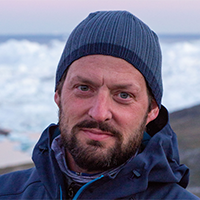When Jay Lemery, MD, an associate professor of emergency medicine, launched the Climate & Health Science Policy Fellowship in 2017, he started with a recently graduated emergency medicine fellow working in the CU Department of Emergency Medicine.
This year, the fellowship expanded to five fellows from across the country who are working in multiple specialties. Through their fellowship, they are embedded in major federal policy organizations, including the Centers for Disease Control and Prevention (CDC), the U.S. Environmental Protection Agency (EPA), and the National Oceanic and Atmospheric Administration (NOAA).
Intersection of climate change and health
The one-year fellowship was the first of its kind in the country, with a mission to empower health care professionals to address medical issues related to climate change.
Lemery and experts from around the world call this emerging field climate medicine, and it addresses a spectrum of climate-related health concerns, from hyperthermia brought on by extreme heat events to diseases caused by degraded water quality due to flooding.
As the world’s average temperature rises, disease-carrying insects will have longer breeding seasons, leading to an increase in vector-borne illnesses like malaria, Lyme disease, and dengue fever. Poor air quality caused by wildfires, food insecurity due to droughts, and even longer and more intense allergy seasons can all be linked to climate change.
“We looked at these issues and asked, ‘Who's going to lead?’” Lemery says. "That’s why we created this fellowship — to mobilize clinicians.”
Expanding with a new administration
Although the fellowship was started as a traditional graduate medical education fellowship within the Department of Emergency Medicine, the demand convinced Lemery to scale up the number of fellows and broaden the approach to include more specialties.
“We want our fellows to be in the room where it happens, to be part of those meetings and know the people and the decision makers.” - Jay Lemery, MD
“As we grew, we realized we couldn’t stop at just one fellow a year,” Lemery says. “There was no need for them to be working at the Anschutz Medical Campus — they could be anywhere. And they should come from all disciplines.”
In addition to the increased number of fellows and the expansion beyond emergency medicine, this year’s program includes fellows who work in governmental policy organizations rather than clinical settings.
“These fellows have a very rich ecosystem to learn in,” Lemery says. “The new administration is leaning into big projects and multifaceted, governmental approaches to address climate issues, and the health angle is an important part of that.”
In the room where it happens
The new class of fellows started on July 1. They are:
- Eric Balaban, MD, an internal medicine physician, completed his residency at UCHealth University of Colorado Hospital (UCH) and is at NOAA.
- Bhargavi Chekuri, MD, a family medicine physician, completed her residency at Dartmouth-Hitchcock and is at the U.S. Global Change Research Program.
- Beth Gillespie, MD, an assistant professor at the CU School of Medicine and hospital medicine physician at Denver Health, is at the CDC.
- Emily Sbiroli, MD, an emergency physician, completed her residency at University of San Diego and is at the EPA.
- Stefan Wheat, MD, an emergency medicine physician, completed his residency at University of Arizona and is at the U.S. Department of Health and Human Services.
Traditional education and scholarship with CU faculty members will continue to be an important part of the program, but Lemery says the fellows will also be learning "on the job.”
“We want our fellows to be in the room where it happens, to be part of those meetings and know the people and the decision makers,” he says. “We want to give them a broad experience so they can go do all sorts of different things related to climate health, whether it's diving into health care system resiliency, becoming a climate and health advisor for a big NGO, or running their own academic programs.”
The fellowship is currently only open to physicians, but Lemery wants to extend the fellowship and create other professional education opportunities open to all who work with patients.
“We want to impart to them the knowledge — the big knowledge — of climate and health care, so they can become agents for change,” Lemery says.




